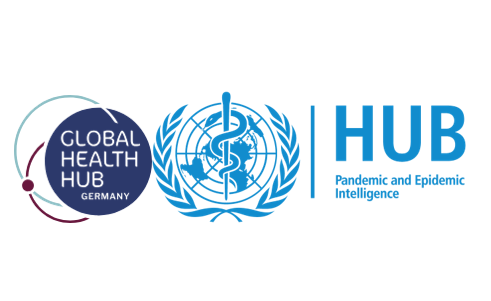The WHO Hub and the Hub Community on Pandemic Prevention and Biosecurity convene for a briefing on their work

On May 30, the WHO Hub for Pandemic and Epidemic Intelligence (WHO Hub) and the GHHG’ Community for Pandemic Prevention and Biosecurity met to discuss their respective initiatives and explore future collaboration.
Session highlights
The WHO Hub showcased two of its 20+ pivotal projects that are part of its mission to improve data, analytics, and decision-making to mitigate pandemic and epidemic threats:
- International Pathogen Surveillance Network (IPSN): Launched in 2023, IPSN aims to bridge gaps in genomic surveillance by fostering collaboration among countries and disease-specific networks. It has expanded to 108 organizations across 45 countries, promoting global collaboration and data sharing for rapid pathogen detection.
- Research Prioritization: A collaborative initiative to set global research priorities for pandemic and epidemic intelligence, aiming to improve strategic coherence and guide investments in research on surveillance methods and tools. The WHO Hub conducted extensive expert consultations in close collaboration with the Global Research Collaboration for Infectious Disease Preparedness (GLoPID-R), the Charité Centre for Global Health, Wellcome Trust and the WHO Science Division and published its findings on May 23, 2024.
The Hub Community on Pandemic Prevention and Biosecurity, managed by Emil Iftekar and Pauline Scheuber, presented their key activities of this year, including organising a policy workshop on infectious disease surveillance and a presentation at the meeting of the expert commission on indoor air quality of the national environment office (Umweltbundesamt).
Areas for subsequent discussion included the barriers to scaling up pathogen genomic surveillance, data interoperability as a challenge for data sharing, as well as issues around sharing concerns when for example using data from national security communities for public health intelligence communities. Additionally, discussions delved into the research prioritization methodology and current bottlenecks to optimal public health intelligence.
Both Hubs look forward to bringing their networks and communities closer together and to further exchange expertise in the future.